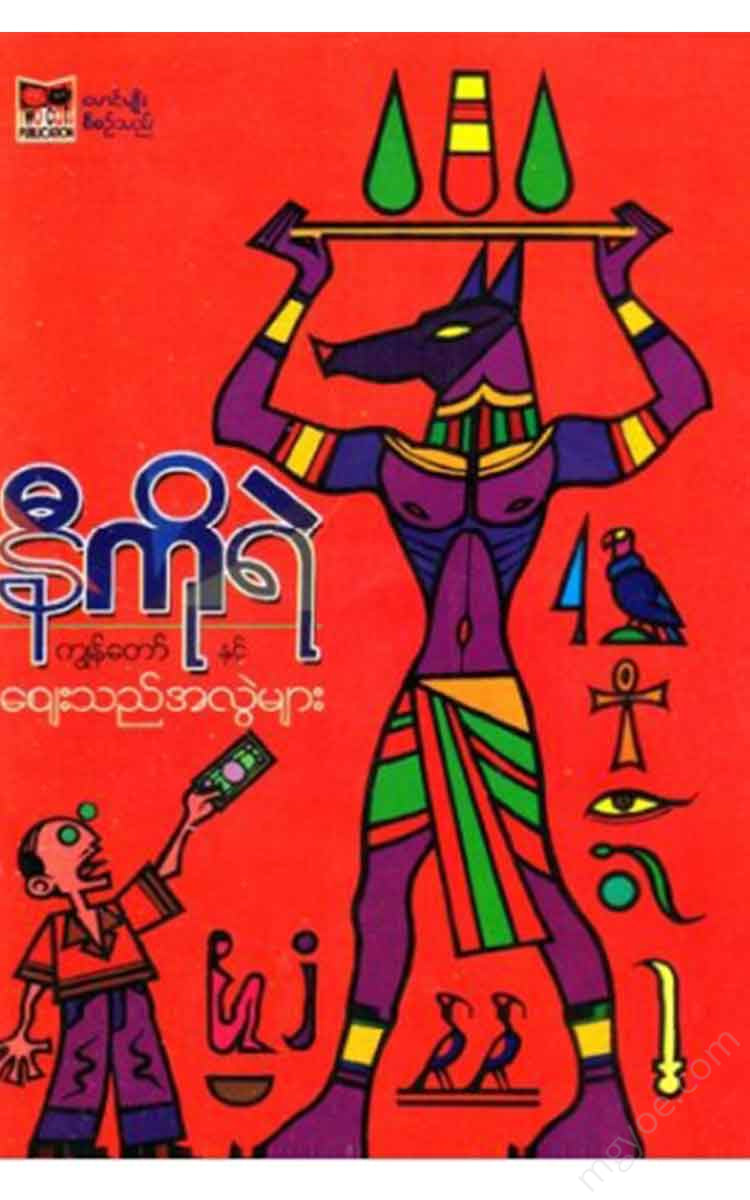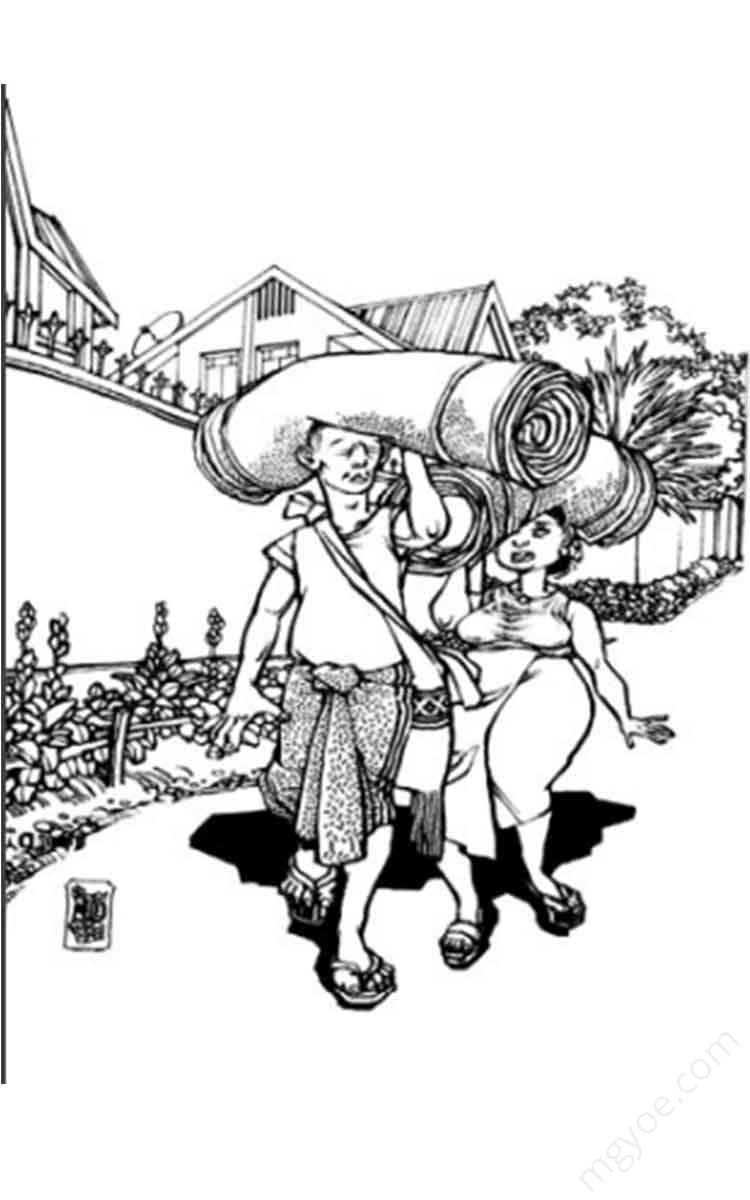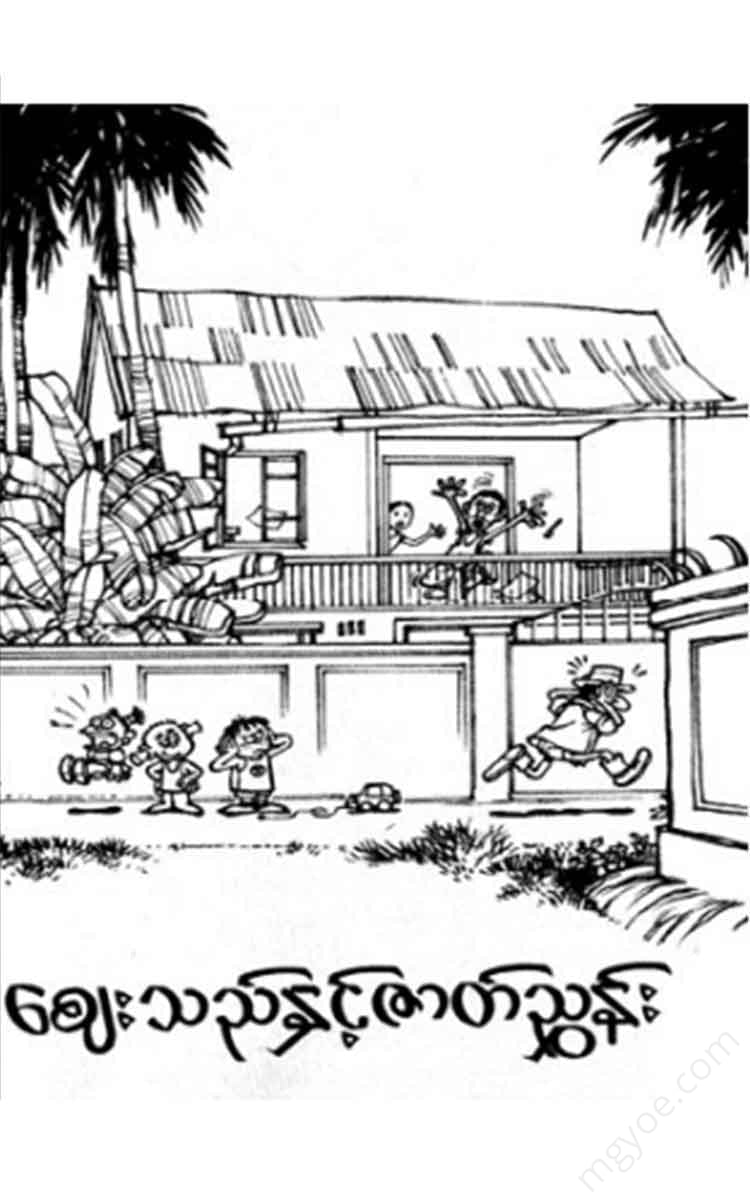Other Websites
Nico - Vendor Mistakes
Nico - Vendor Mistakes
Couldn't load pickup availability
5 Mistakes between me and the marketer
Not all of us humans are free from buying and selling. I think that everyone buys and sells at a market. When I said this, a friend of mine said, “I am a worker. I do not sell at a market. You are wrong,” with a smile that he could understand.
"Aren't employees just selling their time, their labor, and their expertise at a certain time?"
Finally, my friend fell silent.
We have to accept that we are people who sell something and buy something. Even I, who do not leave the house, am not exempt from buying and selling. At least I buy bread at the snack shop at the top of the road. I buy tea at the tea shop. I also buy pens, Maung Taing ink pots, Color Pacil, paper, etc. When my wife is not able to do it, I often go to the market to buy cooking supplies and necessary kitchen utensils.
As for selling, I currently sell bottled water, soft drink bottles, newspapers and papers, and bottles. Last month, I picked coconuts from five coconut trees in front of my house and got over a hundred coconuts, so I became a coconut seller.
There is a saying that the seller and the buyer have the same voice.
The only thing that exists between the seller and the buyer is the product. The problem is that there are two types of products: those with a fixed price and those with a price that is difficult to set and can be bought at whatever price the seller says or sold at whatever price the buyer wants.
I think that's why the phrase "haggling" came about. When we were kids, my aunts would tell each other to go to the General Market and buy something for half the price the marketer said. They always charged more than the actual price.
One night, my two aunts got into a fight.
The problem started with a piece of cloth. My great-aunt bought a piece of cloth from Bogyoke Market. The price was 110 in 1976, when I was ten years old. My great-aunt compared the price to 180, and finally the price was 110.
After the bargain was settled, my aunt showed me the silk sarong she had bought, and I liked it and bought it back from her. The aunt did not sell it right away, but insisted that she had bought it because she liked it. Finally, after everyone had talked, the aunt relented and sold her purchase to the aunt for 110 kyats. Even so, there was a flaw. She demanded immediate payment. My aunt stomped her feet and offered 109 kyats. She said 1 kyat was the highest price. They were still trying to argue, but everyone agreed, and the sarong was sold within the family for 109 kyats.
My younger aunt worked at the trade office at the time. The older aunt said she was an accountant. I don't remember which department. The younger aunt also sewed a batik blouse that she bought for 109 kyats, put it on top, and wore it the next day. The problem was that her female colleagues said they liked the design very much.
So the younger sister asked the older sister which shop she bought it from. So the older sister happily asked which shop in Bogyoke Market and which corner to turn to. Usually, when girls say they like a certain item of clothing, they will direct them to a shop where that item is available. That is why businessmen who sell women's goods seem to think that if a girl starts buying their goods, they are successful.
Girls often have a strong sense that if she can wear it, I can wear it. Or that she and I are so close that we will dress alike. Girls often show their competition and affection in clothes and beauty products.
When the young aunt and her friends went shopping at the same shop that the old aunt had directed them to, another problem arose. The same patik, the same design, was available for eighty baht per hundred. The price was thirty baht higher.
For this, the young aunt accused the older aunt of raping her. The older aunt also said that when her buyer friends came the next day and testified that they had received the same t-shirt that the older aunt had bought from the same shop that the older aunt had recommended for eighty, the older aunt could not say anything more and turned and left.
Everyone in the house agreed that Aunty shouldn't do that. That was not an exaggeration. At that time, the prices of food, drinks, and services were generally the same.
I also remember the time when my younger aunt and my older aunt had not spoken for about five months. One day, the general bought a week's worth of Hlaing Kyi linen, a famous linen of their time. As usual, my younger aunt's friends said they liked it, so they went to the same shop where my aunt bought it, and it was thirty-five kyats cheaper than my younger aunt's price.
So the young lady understood. The marketer means that they talk about prices based on the time and situation of the people. From that incident, the comment they made was that no matter where you shop, you get half the price.
I've had that incident in my mind since I was a child, but men's instinct is to not cut in half when shopping. When I shop with people like my mother, aunt, or sister, I always get angry when they cut in half. I've never cut that much myself.
I like it when stores, mini markets, and plazas appear. They have fixed prices on items. If you like them, buy them. If you don't like them, don't buy them. It's because a heavy burden of bargaining is reduced.
Not just stores and plazas. There is no need to haggle for prices and items that are generally accepted in the neighborhood. There is no need to haggle for a bowl of rice noodles. There is no need to haggle for a bag of sticky rice. There is no need to haggle for a piece of bread, a piece of turmeric, or a bag of rice bran.
But not all items are without bargaining. When I come across items that are worth bargaining for, the first reason I don't bargain is because I don't estimate how much they have on the item. The second reason is that I accept that it is natural for the seller to sell the item at a profit based on their equity. The third reason is because I am a writer.
If I were to quote Saya Zaw Zaw Aung, I would clarify the third point. “If you like what I write, read it. If you don’t like it, don’t read it at all,” even our Saya Zaw, who used to say so boldly, would say, “Only five hundred—sell it if you like it, don’t sell it if you don’t like it.” I don’t think my teachers, such as Setar Ni, Kyi Thu, Dagon Tara, Paragu, Mya Than Tint, Paing Soe Wai, Nay Myo, Tara Min Wai, and others, would say the same. My friends, May Nyein, Khat Ma, Moe Cho Thin, Mona, Hnin Wa Nyein, and Ma Ei, don’t say that. They are female writers, so they would probably be keen to criticize me. I have never bought from them and don’t know the details, but I am sure that they would not say “only five hundred” when they said that the price was one thousand. If I were to use the words of Master Shwe U Daung…..
I dare to say with my book that they dare not do that.
One day, I met a vendor. The vendor was a mat seller. He had been living in my house for a long time. I often had guests staying at my house. They were literary friends, relatives, and friends from near and far. When the guests stayed overnight, the place was spacious but there was no bed, so the vendor spread out a blanket and slept. The vendor had to lie down on the floor, wrapped in a blanket.
Those guests didn't say anything because they were so embarrassed, but my lady friend was so angry. She asked me several times to buy a mat, but I didn't buy it because I was lazy and didn't have it in the places I usually go to.
That afternoon, I woke up from my bed and while I was talking to Lady Chippy, I heard a voice saying, “Hey, it’s Thapa, Thang Chaw, You Phyu Pya.” I had just finished speaking so I didn’t notice the voice, but Chippy, who was still listening to me, suddenly screamed in surprise.
".. I'm sick.. - I have to buy it."
"This is nature, the white mats, the smooth mats of palm trees."
"Can't you buy it?"
"Yes... How many times have I asked you to buy it? The guests who come have to sleep on the floor, and there's nothing to spread out. And then all the guests who come are just strangers. I don't want to talk about it..."
Sometimes women are satisfied with just a few words. They don't want to say anything after they've said it all.
"Well--- then, call me, please, come here."
I was very upset that the two mat-makers, who were quite far from my house and who were carrying large bundles of cloth on their heads, suddenly couldn't turn their heads even though they heard my screams.
When they arrived in front of the house, they knocked on the large mat on their heads.









